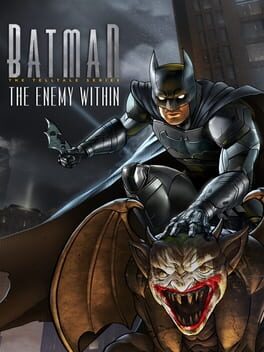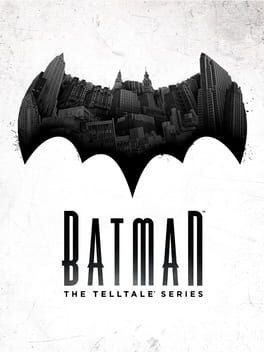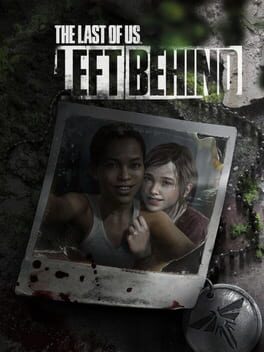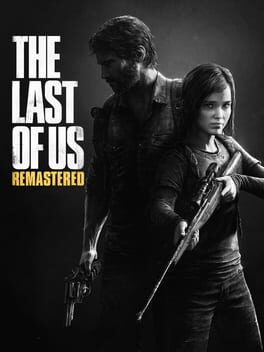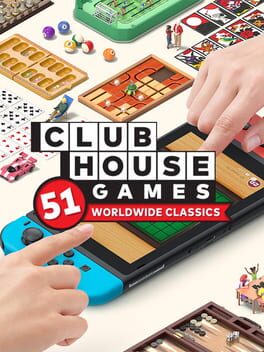JackDeGhetto
Though Batman: The Enemy Within builds upon its predecessor and begins solidly, the series eventually devolves into a succession of dull detective work, tantalizing but unrewarding dialogue, and an ending which is inconclusive and poorly executed.
There is a lot to admire about Batman: The Enemy Within, even if it is ultimately fruitless. The character design, the art direction, the voiceover work, and many of the setpieces are top notch. Moreover, the first two episodes of this five part series do an excellent job in the narrative department.
Where Batman: The Enemy Within fails though is with its gameplay and the clear lack of agency. QTEs abound, some of which are executed quite clumsily or seem without purpose. As for agency, though some choices do have large consequences, these consequences often feel driven more by the pre-directed narrative than your own actions.
While I had high hopes in the first couple of episodes, they were let down as I continued to play. As it stands, and though there is certainly much that is novel and interesting about Batman: The Enemy Within, I'm not sure it was a tale worth the often arduous experience.
Content: Single-Player Campaign
Difficulty: N/A (None)
Source: Steam
Input: Mechanical Keyboard & Mouse
Display: Monitor
Audio: Headphones
Location: Home
Audience: Solo
Tweaks & Mods: N/A (None)
There is a lot to admire about Batman: The Enemy Within, even if it is ultimately fruitless. The character design, the art direction, the voiceover work, and many of the setpieces are top notch. Moreover, the first two episodes of this five part series do an excellent job in the narrative department.
Where Batman: The Enemy Within fails though is with its gameplay and the clear lack of agency. QTEs abound, some of which are executed quite clumsily or seem without purpose. As for agency, though some choices do have large consequences, these consequences often feel driven more by the pre-directed narrative than your own actions.
While I had high hopes in the first couple of episodes, they were let down as I continued to play. As it stands, and though there is certainly much that is novel and interesting about Batman: The Enemy Within, I'm not sure it was a tale worth the often arduous experience.
Content: Single-Player Campaign
Difficulty: N/A (None)
Source: Steam
Input: Mechanical Keyboard & Mouse
Display: Monitor
Audio: Headphones
Location: Home
Audience: Solo
Tweaks & Mods: N/A (None)
Though dark, brooding, and often surprising in both function and form, Batman: The Telltale Series never delivers on its innate promise of being a compelling journey with much player agency. There are certainly a variety of choices players can make, but the consequences of these choices feel few and far between with little impact on the outcome.
This wouldn't be a problem, as the illusion of choice is often just as satisfying as the real thing. However, this illusion is often broken by laughable moments, technical glitches, poor sound design, and an altogether intellectually offensive story in which events are easily predictable, character motivations are wacky, and episodes feel disjointed.
There are, of course, aspects I did enjoy: the art style is superb, the music is sublime, the themes tackled within are interesting, and the setpieces are sometimes awe-inspiring. Moreover, the work plays with player-agency in an interesting - if ultimately clumsy - fashion.
I didn't dislike all of Batman: The Telltale Series. In fact, one episode in particular of this five part series stood out to me as extremely solid. Nonetheless, when the series ended, I couldn't help but feel that nothing was gained or lost. The journey to get to the conclusion was futile and, while a very "playable" experience, it lacks the proper engagement and story-telling to make it worthwhile.
Content: Single-Player Campaign
Difficulty: N/A (None)
Source: Steam
Input: Mechanical Keyboard & Mouse
Display: Monitor
Audio: Headphones
Location: Home
Audience: Solo
Tweaks & Mods: N/A (None)
This wouldn't be a problem, as the illusion of choice is often just as satisfying as the real thing. However, this illusion is often broken by laughable moments, technical glitches, poor sound design, and an altogether intellectually offensive story in which events are easily predictable, character motivations are wacky, and episodes feel disjointed.
There are, of course, aspects I did enjoy: the art style is superb, the music is sublime, the themes tackled within are interesting, and the setpieces are sometimes awe-inspiring. Moreover, the work plays with player-agency in an interesting - if ultimately clumsy - fashion.
I didn't dislike all of Batman: The Telltale Series. In fact, one episode in particular of this five part series stood out to me as extremely solid. Nonetheless, when the series ended, I couldn't help but feel that nothing was gained or lost. The journey to get to the conclusion was futile and, while a very "playable" experience, it lacks the proper engagement and story-telling to make it worthwhile.
Content: Single-Player Campaign
Difficulty: N/A (None)
Source: Steam
Input: Mechanical Keyboard & Mouse
Display: Monitor
Audio: Headphones
Location: Home
Audience: Solo
Tweaks & Mods: N/A (None)
Though full of captivating moments, a unique art style, and amazing sound design, upon finishing Return of the Obra Dinn I find it difficult to say that I fully enjoyed it. The story is interesting, the voice acting is superb, and it is exceptionally tightly written.
However, it is also marred by a horrendous interface that is not conducive to a pleasant experience. As much of the game is spent in this interface, I often found myself losing engagement with the mystery to be solved while becoming frustrated at how much time I was simply spending in menus; an issue that could easily be rectified in more ways than one.
Moreover, while I was initially impressed by the puzzles, they quickly devolved into a guessing game that was less than challenging. Sure, it's satisfying to solve all the little mysteries contained within the larger mystery that is the story of the Obra Dinn itself. But, that story was largely known to me before solving a vast majority of the clues.
I generally enjoyed my time with Return of the Obra Dinn and would love to see more games created in this style. However, I'd be hard-pressed to experience a (pseudo-)sequel without a major overhaul of the UI, an increased difficulty in the puzzles themselves, and a reimagined narrative structure.
Content: Single-Player Campaign
Difficulty: N/A (None)
Source: Steam
Input: Mechanical Keyboard & Mouse
Display: Monitor
Audio: Headphones
Location: Home
Audience: Solo
Tweaks & Mods: N/A (None)
However, it is also marred by a horrendous interface that is not conducive to a pleasant experience. As much of the game is spent in this interface, I often found myself losing engagement with the mystery to be solved while becoming frustrated at how much time I was simply spending in menus; an issue that could easily be rectified in more ways than one.
Moreover, while I was initially impressed by the puzzles, they quickly devolved into a guessing game that was less than challenging. Sure, it's satisfying to solve all the little mysteries contained within the larger mystery that is the story of the Obra Dinn itself. But, that story was largely known to me before solving a vast majority of the clues.
I generally enjoyed my time with Return of the Obra Dinn and would love to see more games created in this style. However, I'd be hard-pressed to experience a (pseudo-)sequel without a major overhaul of the UI, an increased difficulty in the puzzles themselves, and a reimagined narrative structure.
Content: Single-Player Campaign
Difficulty: N/A (None)
Source: Steam
Input: Mechanical Keyboard & Mouse
Display: Monitor
Audio: Headphones
Location: Home
Audience: Solo
Tweaks & Mods: N/A (None)
Update: After several days, I came back and finished The Last of Us: Part II in a single sitting. Upon completion, I can safely say that I was wrong: Part II is a solid game. However, it's far from perfect.
There are so many moments scattered throughout that are worth the experience, both of heartbreak and of hope. It's also mind-blowingly beautiful to the eyes and ears. Furthermore, I dig the combat. Then again, it definitely does outstay its welcome and becomes altogether sluggish to get through by the end.
As mentioned, I can't say that it's perfect; far from it. The pacing can be trying, some characters are one-dimensional, dialogue can be cringe-worthy, and the experience as a whole is simply much too long. I also ran into several bugs, a few puzzles that felt pointless, and often felt as if the narrative was trying way too hard to be emotionally manipulative. The cliches and tropes within more than once made me reach the point of laughter.
But, overall, I enjoyed it. If some content were to be cut, some quality of life issues to be resolved, and some plot conveniences taken out, my opinion would likely be exponentially more positive. As it stands, though? The Last of Us: Part II is a game I'll often look back on. However, I certainly won't always be looking back on it fondly.
Initial Review: After many hours of loving The Last of Us: Part II, I began to loathe it for a variety of reasons. Without going into spoilers, there is much to be said for heeding the old saying that less is more. The creators of this game certainly did not.
For those first hours, I was hooked: combat felt fantastic, exploration was enticing, and the narrative was solid. It felt a little soapy at times and nothing to do with romance clicked with me. But, besides those qualms, I simply found it amazing.
And then: I didn't. I felt as if a practical joke was being pulled on me, but then it kept going. And going. Until I could no longer stand it. Maybe someday I'll be able to play The Last of Us: Part II and not walk away with a sour taste in my mouth. For now, I must deal with the immense disappointment I am left with.
As a game with so much potential, brilliance, and wonder, it truly wastes it all in the pursuit of being different. It's certainly novel, as it wastes its potential in a manner that is exceptionally bamboozling and unique; a reference for the ages on how not to structure narrative nor make a point to your audience. (Original Score: 4/10)
Content: Single-Player Campaign
Difficulty: Moderate
Source: PlayStation Store
Input: DualShock 4
Display: TV
Audio: Headphones
Location: Home
Audience: Solo & Accompanied
Tweaks & Mods: N/A (None)
There are so many moments scattered throughout that are worth the experience, both of heartbreak and of hope. It's also mind-blowingly beautiful to the eyes and ears. Furthermore, I dig the combat. Then again, it definitely does outstay its welcome and becomes altogether sluggish to get through by the end.
As mentioned, I can't say that it's perfect; far from it. The pacing can be trying, some characters are one-dimensional, dialogue can be cringe-worthy, and the experience as a whole is simply much too long. I also ran into several bugs, a few puzzles that felt pointless, and often felt as if the narrative was trying way too hard to be emotionally manipulative. The cliches and tropes within more than once made me reach the point of laughter.
But, overall, I enjoyed it. If some content were to be cut, some quality of life issues to be resolved, and some plot conveniences taken out, my opinion would likely be exponentially more positive. As it stands, though? The Last of Us: Part II is a game I'll often look back on. However, I certainly won't always be looking back on it fondly.
Initial Review: After many hours of loving The Last of Us: Part II, I began to loathe it for a variety of reasons. Without going into spoilers, there is much to be said for heeding the old saying that less is more. The creators of this game certainly did not.
For those first hours, I was hooked: combat felt fantastic, exploration was enticing, and the narrative was solid. It felt a little soapy at times and nothing to do with romance clicked with me. But, besides those qualms, I simply found it amazing.
And then: I didn't. I felt as if a practical joke was being pulled on me, but then it kept going. And going. Until I could no longer stand it. Maybe someday I'll be able to play The Last of Us: Part II and not walk away with a sour taste in my mouth. For now, I must deal with the immense disappointment I am left with.
As a game with so much potential, brilliance, and wonder, it truly wastes it all in the pursuit of being different. It's certainly novel, as it wastes its potential in a manner that is exceptionally bamboozling and unique; a reference for the ages on how not to structure narrative nor make a point to your audience. (Original Score: 4/10)
Content: Single-Player Campaign
Difficulty: Moderate
Source: PlayStation Store
Input: DualShock 4
Display: TV
Audio: Headphones
Location: Home
Audience: Solo & Accompanied
Tweaks & Mods: N/A (None)
The Last of Us: Left Behind expands on both the lore of The Last of Us as well as the character of Ellie in excellent fashion. The individual set pieces scattered throughout are both emotionally enthralling and visually stunning. Risks are taken here that pay off in droves.
Nevertheless, the short campaign also has some faults. The combat is the same as The Last of Us, but encounters are few and far between with level design that isn't all too pristine. Much time is simply spent meandering. While slow pacing isn't inherently bad, it is made poor by the choice to cut between two strings of narrative; a decision often to the detriment of the piece.
There is one moment in particular in which the medium is used exceedingly well - a moment I don't wish to spoil here. But, at other times, I felt that The Last of Us: Left Behind being a game simply hurt the narrative contained within. None of this is to say that it isn't a good piece of DLC: it certainly is, and there are many memorable moments that are both impressive and compelling. Left Behind simply doesn't reach the greatness of The Last of Us proper.
Content: Single-Player Campaign
Difficulty: Normal
Source: PlayStation Store
Input: DualShock 4
Display: TV
Audio: Headphones
Location: Home
Audience: Solo
Tweaks & Mods: N/A (None)
Nevertheless, the short campaign also has some faults. The combat is the same as The Last of Us, but encounters are few and far between with level design that isn't all too pristine. Much time is simply spent meandering. While slow pacing isn't inherently bad, it is made poor by the choice to cut between two strings of narrative; a decision often to the detriment of the piece.
There is one moment in particular in which the medium is used exceedingly well - a moment I don't wish to spoil here. But, at other times, I felt that The Last of Us: Left Behind being a game simply hurt the narrative contained within. None of this is to say that it isn't a good piece of DLC: it certainly is, and there are many memorable moments that are both impressive and compelling. Left Behind simply doesn't reach the greatness of The Last of Us proper.
Content: Single-Player Campaign
Difficulty: Normal
Source: PlayStation Store
Input: DualShock 4
Display: TV
Audio: Headphones
Location: Home
Audience: Solo
Tweaks & Mods: N/A (None)
The Last of Us is a game which is all about the details. From the slight expressions on the faces of characters expressing disgust, sadness, or loss, to the stories scattered around each and every environment, to the moments of magic found between large set pieces: it is these moments in which The Last of Us shines most.
The story is epic in scale yet told succinctly. The characters are memorable; difficult to love yet hard to forget. The pacing is more than fair, if a bit tedious at times. Overall, in terms of narrative, The Last of Us can hold its own.
It is the gameplay aspects where The Last of Us falls - slightly - short: various minor visual and gameplay glitches are present, controls can feel a bit clunky and, every so often, an AI companion will simply get in the way.
But, these minor flaws do not take away greatly from the amazement and wonder which The Last of Us contains. It is exceedingly emotional, with weighty and satisfying gameplay to boot. Moreover, it is an adventure I doubt I'll ever forget.
Content: Single-Player Campaign
Difficulty: Normal
Source: PlayStation Store
Input: DualShock 4
Display: TV
Audio: Headphones
Location: Home
Audience: Solo
Tweaks & Mods: N/A (None)
The story is epic in scale yet told succinctly. The characters are memorable; difficult to love yet hard to forget. The pacing is more than fair, if a bit tedious at times. Overall, in terms of narrative, The Last of Us can hold its own.
It is the gameplay aspects where The Last of Us falls - slightly - short: various minor visual and gameplay glitches are present, controls can feel a bit clunky and, every so often, an AI companion will simply get in the way.
But, these minor flaws do not take away greatly from the amazement and wonder which The Last of Us contains. It is exceedingly emotional, with weighty and satisfying gameplay to boot. Moreover, it is an adventure I doubt I'll ever forget.
Content: Single-Player Campaign
Difficulty: Normal
Source: PlayStation Store
Input: DualShock 4
Display: TV
Audio: Headphones
Location: Home
Audience: Solo
Tweaks & Mods: N/A (None)
Let's say you're ten years old and your parent just asked that you tag along with them as they run some errands. You hesitate at first, but realizing you have no real choice in the matter, you reluctantly go along for the inevitable ten minute, turned hour, turned three hour long ride. After being ever so patient, fiddling on your Gameboy Advance and messing with your parent's radio presets, you spot it: the big electronics department store in town. You plead and beg to go. Surprisingly, it works. You step inside and immediately head to the video games section, playing demos as your parent decides to stock up on ink cartridges, batteries, and bargain bin flicks. Then, you decide to grab a game, or two, or three, and bring them to your parent. Maybe this time will be different. Maybe, this time, they'll buy one for you.
And, this time is different. Although, not in the excepted manner. Upon checking out, your parent notices a selection of jewel CD cases all claiming to contain thousands of games for one extremely low price. They purchase it for you, asking you to return the games you picked up to the cashier so they can return them to the display. You feign excitement, but are disappointed. You've been lied to by the covers of these game collections before.
Now, imagine if Nintendo made one of these game collections. And they polished it. And, in the process of polishing it, left a few noticeable blemishes. That, in a nutshell, is Clubhouse Games: 51 Worldwide Classics.
The games contained within range from the familiar to the novel, all accompanied by trivia to be learned and medals to be earned. My first few hours playing, I was hooked. I dove right into some of my favorites, from checkers, to Nintendo's own free-domain version of Yahtzee, to Wii-like bowling. There were also some newfound favorites I learned quickly thanks to the rules accompanying all games and the tutorials alongside those which are more complex, such as shogi and hanafuda.
Nonetheless, as I continued to explore the selection of games presented to me by the guides within, a variety of annoyances began to appear: the UI - though pretty - does not provide a solid user experience, the local play - while great in theory - tends to drop out and end games much too soon, and the restrictions on customization and rule sets are outright aggravating.
However, for every time I found myself bewildered at a design decision, it was made up for by a serendipitous round of golf via online matchmaking or a game of darts with friends. Not every game contained within is conducive to extended play nor is every game going to appeal to everyone. Some games have clearly had more time put into them than others, and some can hardly even be classified as games.
Oddly enough, that's what makes Clubhouse Games: 51 Worldwide Classics a worthwhile - if fairly imperfect - endeavor: while not a masterpiece, it's a quirky yet meaningful game collection bursting with personality that has a little something for everyone.
Content: Single-Player, Local Competitive, Online Competitive
Difficulty: N/A (Several)
Source: Nintendo Game Store
Input: Joycons, Touch
Display: TV Docked, Portable, Tabletop
Audio: TV Speakers, Console Speakers
Location: Home
Audience: Solo & Accompanied
Tweaks & Mods: N/A (None)
And, this time is different. Although, not in the excepted manner. Upon checking out, your parent notices a selection of jewel CD cases all claiming to contain thousands of games for one extremely low price. They purchase it for you, asking you to return the games you picked up to the cashier so they can return them to the display. You feign excitement, but are disappointed. You've been lied to by the covers of these game collections before.
Now, imagine if Nintendo made one of these game collections. And they polished it. And, in the process of polishing it, left a few noticeable blemishes. That, in a nutshell, is Clubhouse Games: 51 Worldwide Classics.
The games contained within range from the familiar to the novel, all accompanied by trivia to be learned and medals to be earned. My first few hours playing, I was hooked. I dove right into some of my favorites, from checkers, to Nintendo's own free-domain version of Yahtzee, to Wii-like bowling. There were also some newfound favorites I learned quickly thanks to the rules accompanying all games and the tutorials alongside those which are more complex, such as shogi and hanafuda.
Nonetheless, as I continued to explore the selection of games presented to me by the guides within, a variety of annoyances began to appear: the UI - though pretty - does not provide a solid user experience, the local play - while great in theory - tends to drop out and end games much too soon, and the restrictions on customization and rule sets are outright aggravating.
However, for every time I found myself bewildered at a design decision, it was made up for by a serendipitous round of golf via online matchmaking or a game of darts with friends. Not every game contained within is conducive to extended play nor is every game going to appeal to everyone. Some games have clearly had more time put into them than others, and some can hardly even be classified as games.
Oddly enough, that's what makes Clubhouse Games: 51 Worldwide Classics a worthwhile - if fairly imperfect - endeavor: while not a masterpiece, it's a quirky yet meaningful game collection bursting with personality that has a little something for everyone.
Content: Single-Player, Local Competitive, Online Competitive
Difficulty: N/A (Several)
Source: Nintendo Game Store
Input: Joycons, Touch
Display: TV Docked, Portable, Tabletop
Audio: TV Speakers, Console Speakers
Location: Home
Audience: Solo & Accompanied
Tweaks & Mods: N/A (None)
